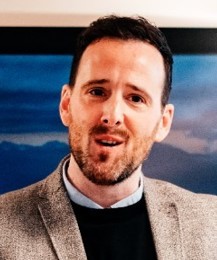Harnessing the potential of young generations: Tactics against youth unemployment – Part 1
Video
.
August 12th marks the International Youth Day, where we celebrate the potential of young people to shape the future of our increasingly interconnected world. With half of the global population under 30, young generations will find solutions to some of the toughest global challenges. However, even before the pandemic, the world faced a youth unemployment crisis, with millions of young women and men excluded from pathways to sustainable employment.
Our Pontoon Instinct Director of Strategic Insights – Shannon Robertson – recently interviewed Adecco Group’s (TAG) Global Head of CEO for One Month – Dan Crerand – on how businesses can get involved in bridging the youth employability gap.
CEO for One Month is TAG’s initiative that allows young people to develop and showcase their potential in a real-life corporate environment. Led by Dan, this unique internship lets youth acquire the skills and experience needed to get a foot on the career ladder. Notably, the scheme requires no specific education or skill background – instead, it focuses on the person’s potential to develop into a future business leader.
Tune in to part one of Shannon and Dan’s conversation for insights on how to empower today’s youth to lead the workforce of the future.

Shannon Robertson – Strategic Insights Director, Pontoon Instinct
Shannon Robertson: What are some common themes the youth of today share with you as important to them when looking for roles?

Dan Crerand – Global Head of CEO for One Month, TAG
Dan Crerand: Yeah, it’s the million-dollar question. I think that even without getting into specifics of what they want from a role, Gen Z candidates have super high expectations of their current and future employers and organisations in general. They see us as an important vehicle that impacts diversification, social and environmental issues, sustainability, and they feel it also influences their personal development, employee workload, products and services toward customers, etc. I’ve seen them make decisions solely based on the ethical values of the company. And when I say they deep dive, they deep dive. They will look to see if what you’re saying and committing to is actually put into action in the operations of your business.
From a granular perspective, I would say they want a clear development plan. In many instances, I’ve seen companies do a lot of work around front loading, trying to put all their time and money into finding the best candidates. But with this generation, this is no longer enough. They want an internal mobility route for themselves to see that they have a future path of continuous learning. They get meaningful work, and this is crucial for them at this career stage.
I think the one bit to call out is they are very entrepreneurial – Forbes has said that around 54% of young people are entrepreneurial. They want this meaningful work where they’re trusted with responsibility on special projects, where they’ll have an impact, develop skills and keep learning. If offered a chance to upskill, 1 in 5 Gen Z candidates would stay with an employer they were teetering on leaving. So that’s crucial for them to see a continuous learning path and a future in the business.
Shannon Robertson: What would you consider being some of the major factors influencing youth unemployment?
Dan Crerand: I think it’s a really big discussion point. Unemployment has been up and down in the last few years, and the recession is also making it difficult. Covid was obviously not helpful either, as there were many postponed internships, graduate programmes, etc.
I think the current challenge with youth unemployment is that sometimes an intern or grad is seen as a continuous improvement for a business, as a value-type addition rather than a necessity. Whereas I’ve always seen early careers as the bedrock, the foundation of a business. You’ve got all these people with new ideas, technologically minded, brought up in this tech-first world, that have spent many of their final studies in a virtual environment.
Businesses are now going through a real transition, a position of change. But, sometimes, they will still go for the experienced hires, as they will not have the time to ride the storm and bring in the early career talent – and I think that’s kind of where it’s wrong.
Also, in the media, we’re getting sucked into a lot of terminology, things like Mickey Mouse degrees or should you go to university or not, should you do an apprenticeship, what is the point of doing certain things, etc. – many people have these differing views. There are also discussions around paid or unpaid internships, youth expectations and behaviours. And unfortunately, it is generating some of these incorrect perceptions of youth employment.
I have also spoken to business leaders who see entrepreneurship as a bit of a fear factor because they think: “Do I want to bring in somebody who’s then going to run off and go and start their own business or create something of their own”? Meanwhile, I think that these people have a lot of potential. They’ve got critical and strategic thinking, planning skills, hard work and dedication; they are probably good in sales and have a lot of creativity. I could go on and on, but the reality is that if they leave to start their own business, it could be a side hustle alongside their core employment. Or suppose they formally leave in two, three, five or ten years. In that case, I’m looking at that as having two to five years of a budding entrepreneur in your business, and it’s about finding a role for them and convincing them to stay in your organisation.
I think that they need to become the bedrock of the businesses.
Shannon Robertson: I read a report from the World Economic Forum that suggests in 2022, almost one in four of all young people were not in education, employment or training (NEET). The youth NEET rate jumped to its highest in almost 15 years. As a consequence, young people may not see their labour market opportunities, and their outcomes deteriorate in the longer term.
What role do you think businesses should play in opening opportunities for the NEET youth?
Dan Crerand: Yeah, it’s definitely a concern. As you say, 20 – 25% of people are impacted. I think what sits behind that 25%ish number is an even bigger difference in the gender differentiation within that network – probably 50% difference between males and females in terms of reported figures. That was supposed to be opposed by bringing in the platinum economy, and digitalisation was also something which would help protect the balance. But, as we know, there may still be a reduction in jobs around that.
For me, it’s about going right to the core of education, something I’m really passionate about. I think education doesn’t always match young people at that early point in their careers. Their behaviours or interests don’t align with academia, while some have less access through their parental network or their opportunities as they grew up. We need to increase the awareness of more roles and careers. Just because someone was never really into Macbeth or Pythagoras, it doesn’t mean they’re unemployable – sorry to the mathematics wizards and the readers, but that’s a fact.
We need to think: “How do we better showcase these hidden and potentially short-skilled sectors or open our doors to more opportunities for people to live the day in the life of, for example, a global programme head or a transformation manager”? How do we get through to these roles that are not talked about enough? There are people coming out of education, even at the graduate level, your art students, journalists, and graphic designers struggling to get work. But are they ever told they have a very useful skill set to be a UX designer? I don’t think they are. Suppose you’re really interested in sustainability like we see in the media very often; all young people are. Why aren’t we getting them into solar panels and energy management? They are just simply unaware of these options coming from education. And I think it’s on us to do something with that.
Can educational institutions revise the curriculum? Does that sit with us, employers? I’ve worked with these educational bodies before and they care so much, but they are huge organisations with massive student bases, and they’re struggling to give them this kind of advice. It’s really difficult for them to do so. But I think between us, between businesses and education, we need to think outside the norm.
There’s a couple of little bits I would look at personally. One would be, can we use AI to give people a feel of what jobs are – what it’s like to be in an office, what’s involved in fitting the solar panels? Is there something we can do to give them a taste of these jobs? And then the second bit is something I worked on the last couple of years. This is trying to connect with the guardian network, the parents, and reach out to these groups of high influence who are trying to advise their children on what to do next. How can we help them to invigorate these jobs and find meaningful, gratifying roles for their children? The likes of health care and catering, food and drink, the bedrock of our society, are now struggling to find people. We need to find ways to counter that.
Get in touch with us through the button below to see how we can help you drive systemic changes to young talent employability with Pontoon Instinct.
Related Post
Discover our groundbreaking approach to diversity and inclusion in our latest whitepaper.
Recent research by Harvard Business Review has shown that unrepresented job candidates are less interested in working for companies ...




